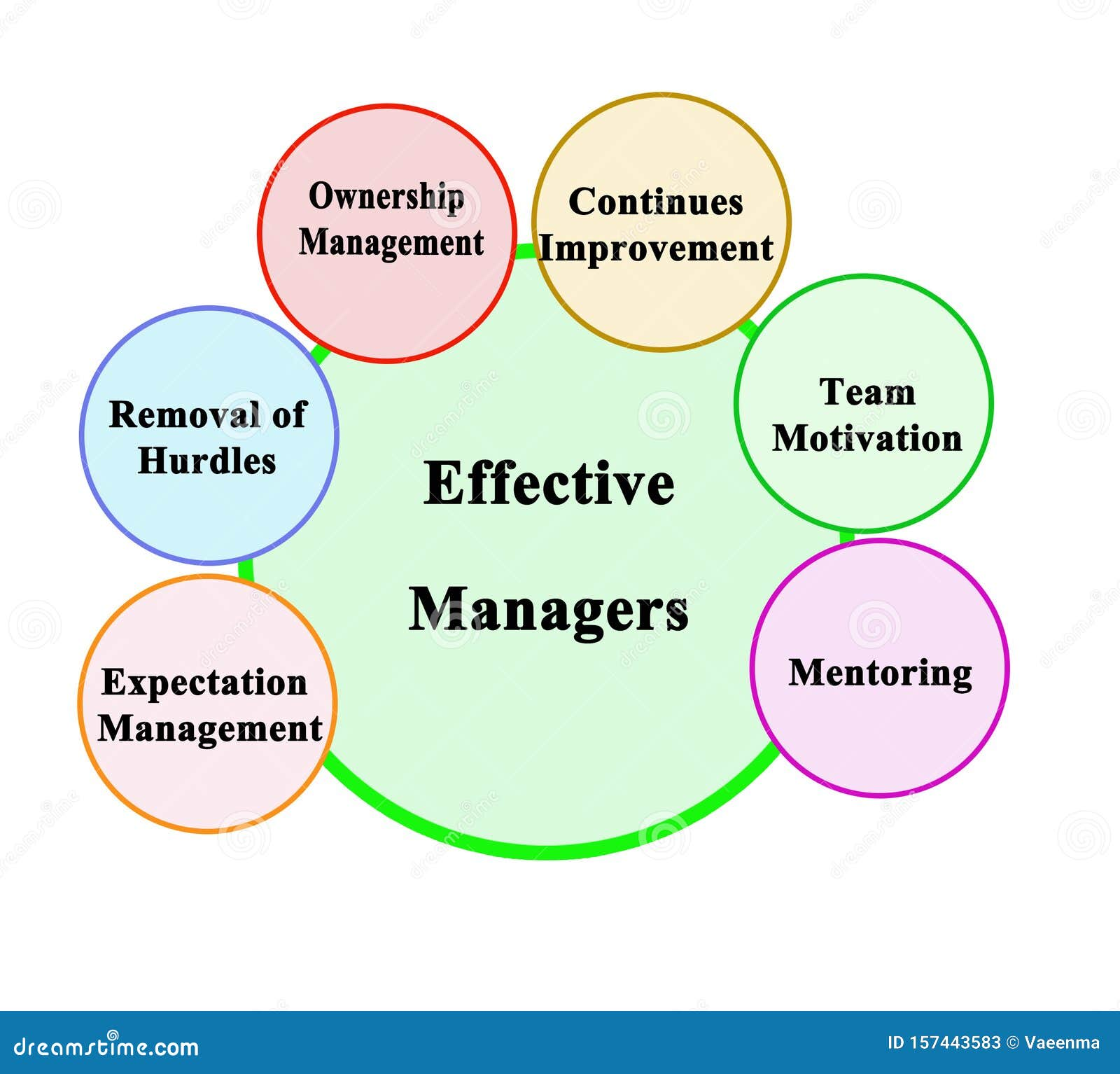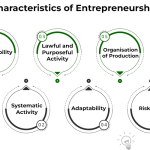Effective managers are the backbone of successful organizations, playing a critical role in optimizing team performance and driving productivity. Their ability to foster an environment of psychological safety while simultaneously exercising strong leadership skills sets them apart in a competitive landscape. Research highlights the importance of identifying the qualities of good managers, showing that traditional managerial selection methods may overlook crucial predictors of managerial effectiveness. Moreover, effective managers combine analytical prowess with interpersonal skills to allocate resources efficiently and motivate their teams, ultimately leading to enhanced problem-solving capabilities. Understanding these dynamics can significantly impact predicting managerial success, providing organizations with a framework for making more strategic management decisions.
Strong leadership is essential in any organization, and those who excel in this field are often referred to as capable leaders or adept supervisors. The effectiveness of these individuals hinges on a unique blend of interpersonal skills and the ability to navigate challenges effectively. Various indicators can suggest a supervisor’s potential for success, such as their capacity for decision-making and resource management. Companies seeking to enhance their operational efficiency must focus on selecting individuals who not only demonstrate leadership qualities but also possess the analytical skills necessary for effective management. By embracing a more scientific approach to management selection, organizations can unlock the full potential of their teams.
Understanding the Qualities of Good Managers
Good managers exhibit a range of qualities that contribute to their effectiveness, but defining these attributes can be challenging. Key qualities include emotional intelligence, which allows managers to relate well to their team members and create an atmosphere of psychological safety. This environment fosters open communication, enabling employees to share feedback without fear of judgment. Additionally, successful managers excel in interpersonal skills, adapting their communication style to suit different team dynamics and individuals. They effectively balance their analytical capabilities with a strategic vision, which provides the direction necessary for achieving organizational goals.
Moreover, the qualities that distinguish good managers may not always be immediately apparent. In many cases, the effectiveness of a manager is contingent not only on their leadership skills and communication prowess but also on their ability to analyze complex issues and develop practical solutions. This combination of soft and hard skills is crucial for navigating the unpredictable challenges that arise in management. Understanding these qualities helps organizations make informed decisions during the management selection process, moving beyond superficial traits to identify candidates who possess the deeper characteristics associated with effective leadership.
The Role of Leadership Skills in Managerial Effectiveness
Leadership skills are paramount for managerial effectiveness, and they encompass a variety of traits that allow individuals to inspire and guide their teams. Effective managers must be able to articulate a clear vision, motivating their employees to work towards shared goals. This ability to energize a team is closely linked to a manager’s interpersonal skills, which facilitate trust and collaboration. Furthermore, good leaders are adept listeners, creating an environment where team members feel valued and heard. This not only enhances teamwork but also contributes to higher levels of employee satisfaction and retention.
The significance of leadership skills extends beyond direct interactions with team members. Managers often serve as a critical link between upper management and their teams, translating strategic goals into actionable plans. Effective communication skills enable managers to relay information clearly and persuasively, ensuring alignment across various levels of an organization. By cultivating these leadership skills, companies can enhance their managerial effectiveness, leading to improved organizational performance and a more resilient workplace culture.
Predicting Managerial Success: Key Indicators
Predicting who will succeed in managerial roles has long been a topic of interest in organizational behavior research. Recent studies suggest that traditional indicators—such as personality traits, age, or formal education—may not accurately forecast managerial effectiveness. Instead, as highlighted by David Deming’s research, two primary predictors stand out: IQ and a measure of economic-decision-making skill. The former assesses cognitive capabilities integral to problem-solving and strategic thinking, while the latter evaluates an individual’s ability to allocate resources efficiently, which is essential for effective management.
By focusing on these predictive measures, organizations can enhance their selection methods and identify candidates who are not only capable but also likely to perform well in managerial positions. This data-driven approach allows companies to shift away from subjective criteria and towards a model that prioritizes skills crucial for success in a managerial role. Consequently, implementing such scientifically informed selection techniques can lead to more effective leadership and ultimately improve organizational outcomes.
Effective Management Selection Methods
The process of selecting effective managers is pivotal for organizational success, yet many companies rely on outdated or ineffective methods. Traditional selection techniques often emphasize personality traits or interpersonal preferences, which, according to Deming’s research, do not correlate strongly with actual managerial performance. Instead, organizations may benefit from adopting more analytical approaches that focus on measurable skills like cognitive ability and economic-decision-making proficiency. These techniques provide a more reliable framework for identifying the right individuals for leadership roles.
Furthermore, developing structured assessments that accurately evaluate candidates based on relevant skills can enhance the overall effectiveness of recruitment strategies. Implementing practical evaluations—such as situational judgment tests and real-life management tasks—enables firms to observe potential managers in action, thus gaining insights into their problem-solving strategies and decision-making processes. This comprehensive approach not only improves the selection of managers but also contributes to a stronger organizational structure where effective leadership can thrive.
The Importance of Communication Skills in Management
Effective communication skills are essential for any successful manager. A manager’s ability to convey information clearly and empathetically can significantly affect team dynamics and workplace morale. Managers who actively listen and adapt their communication styles to fit their teams foster an environment conducive to collaboration and innovation. This adaptability encourages employees to share their ideas and feedback openly, leading to a more engaged and motivated workforce.
Additionally, the nuances of communication play a vital role in conflict resolution and performance management. Managers need to navigate challenging conversations with sensitivity and tact, ensuring that feedback is constructive and focused on development. By honing their communication skills, managers can create a culture of trust and respect, which is essential for maintaining high levels of performance and aligning team efforts with strategic objectives.
Analyzing the Impact of Team Dynamics on Managerial Performance
Understanding team dynamics is crucial for effective management. A manager must recognize the unique strengths and weaknesses of each team member to facilitate optimal task assignments and collaboration. This understanding allows managers to leverage diverse talents within the team, ensuring that tasks are allocated based on individual capabilities, which can lead to enhanced productivity and job satisfaction. Moreover, effective managers are skilled in adapting their leadership styles to suit the dynamics of their teams, fostering a collaborative environment that encourages innovation.
In addition, the interplay between a manager’s leadership qualities and the capabilities of the team can significantly influence overall performance outcomes. When a team excels, the contributions of a competent manager can be amplified, but conversely, a weaker team can hinder even the most skilled manager’s effectiveness. Thus, evaluating team dynamics alongside managerial skills can provide deeper insights into potential performance, guiding organizations toward better hiring and development strategies.
The Challenges of Defining Good Management
Defining what constitutes good management poses a considerable challenge, as it encompasses a broad range of skills and qualities. The effectiveness of a manager is often influenced by situational factors such as organizational culture, team composition, and the specific challenges at hand. Additionally, the traits that lead to success in management can differ considerably between organizations and industries, complicating the identification of universal standards for effective management.
Furthermore, individuals often mistakenly equate the ambition to lead with the capability to manage effectively. This assumption may overlook crucial competencies such as strategic thinking and emotional intelligence that are necessary for successful leadership. Organizations must adopt a more nuanced understanding of what good management entails, moving beyond simplistic metrics to develop more thorough assessment frameworks that capture the multifaceted nature of effective leadership.
Linking Economic Decision-Making to Managerial Effectiveness
The integration of economic decision-making skills and managerial effectiveness presents a compelling argument for re-evaluating current management selection methods. Economic decision-making encompasses the ability to assess risks, allocate resources wisely, and make informed choices that align with organizational goals. This skillset is particularly pertinent in today’s complex and rapidly evolving business environment where leaders must navigate uncertainty and make impactful decisions promptly.
By emphasizing economic decision-making as a core criterion in the selection process, organizations can cultivate a leadership cadre equipped to drive strategic initiatives with confidence. The research indicates that managers with strong decision-making abilities are more likely to foster successful teams and achieve desired outcomes, thereby enhancing overall productivity. Implementing decision-focused assessment tools can facilitate more scientifically grounded hiring practices, ultimately leading to more effective leadership.
The Future of Managerial Selection in Organizations
As organizations continue to evolve, the methodologies for selecting effective managers must also adapt. Embracing data-driven approaches can revolutionize the ways companies identify and develop leadership talent. By integrating insights from recent research, organizations will be better positioned to identify candidates with the appropriate mix of cognitive and economic-decision-making skills that predict successful managerial performance. This evolution will not only streamline the selection process but also enhance the quality of leadership across various sectors.
Looking ahead, organizations that invest in refining their managerial selection processes can expect to see significant improvements in productivity and employee engagement. By prioritizing evidence-based approaches over traditional, preference-based selection methods, companies will cultivate a pool of skilled managers capable of navigating the challenges of modern business environments. The future of management selection lies in the ability to accurately measure and evaluate the competencies that truly matter for effective leadership, setting a new standard in the recruitment and development of managerial talent.
Frequently Asked Questions
What are the qualities of effective managers that lead to managerial effectiveness?
Effective managers possess various qualities essential for managerial effectiveness, including strong interpersonal skills to foster psychological safety among team members, excellent communication abilities to deliver feedback appropriately, and the analytical capability to reassess team dynamics for optimal performance. Additionally, they possess a strategic vision that aligns with the organization’s goals, making them adept at navigating complex challenges.
How can organizations predict managerial success when selecting effective managers?
Organizations can predict managerial success by utilizing scientific methods rather than relying on traditional factors such as personality traits or age. Recent studies suggest that assessments of general intelligence and economic decision-making skills are highly predictive of effective management. Utilizing tools like IQ tests and resource allocation simulations can help identify candidates with the potential for managerial effectiveness.
Why do the preferences for leadership not always indicate effective managers?
Research indicates that individuals with a strong desire to lead do not always translate those preferences into effective managerial skills. Studies show that sometimes those who volunteer for managerial roles may demonstrate overconfidence and lack the necessary relational and analytical skills. Consequently, relying solely on expressed interest in leadership can lead organizations to overlook potentially better candidates.
What methods can improve management selection to find effective managers?
To enhance management selection processes, organizations should implement structured assessments that evaluate relevant skills directly correlated with managerial effectiveness, such as problem-solving and team resource management. Random assignments in controlled settings can also reveal how individuals perform in managerial roles, providing clearer insights into their capacity for leadership.
Why is it important for organizations to focus on developing leadership skills among managers?
Focusing on developing leadership skills among managers is crucial as effective management drives organizational success. Good managers not only guide their teams efficiently but also create an environment where employees feel valued and motivated. This leads to improved productivity, innovation, and ultimately, better overall performance for the organization.
How do psychological safety and communication contribute to effective managers?
Psychological safety, which allows team members to express their thoughts and ideas without fear of retribution, is fundamental for effective managers. This fosters open communication and encourages feedback, enhancing collaboration. Communication skills help managers articulate objectives clearly and provide constructive criticism, which is vital for team development and productivity.
What are the key challenges in identifying effective managers within organizations?
Identifying effective managers poses challenges such as distinguishing their impact from their team’s performance and the prevailing organizational culture. Additionally, biases in hiring processes, reliance on traditional selection criteria, and a lack of structured evaluation methods can cloud the identification of true managerial effectiveness.
What innovative approaches can help assess managerial effectiveness in real-world settings?
Innovative approaches to assess managerial effectiveness in real-world settings include implementing peer evaluations, continuous performance assessments, and using technology to analyze decision-making and team dynamics. Leveraging data analytics to track performance outcomes can also provide insights into the effectiveness of different leadership styles and management strategies.
| Key Aspect | Description |
|---|---|
| Good Manager Qualities | Psychological safety, communication skills, analytical skills, and strategic vision are essential for effective management. |
| Overconfidence in Leadership | Those who volunteer for leadership roles may perform worse than randomly selected managers due to overconfidence and misjudgment of abilities. |
| Effective Predictor Measures | IQ (Raven’s test) and economic decision-making (resource allocation efficiency) are the best predictors for managerial success. |
| Challenges in Management | Effective management involves complex decision-making, prioritization, and resource allocation across all levels of an organization. |
| Research Contribution | The study advocates for a scientific approach to management selection, highlighting measurable skills for improved organizational productivity. |
Summary
Effective managers are essential for any organization seeking to thrive in today’s dynamic environment. This recent study emphasizes that traditional methods of selecting managers based on personality traits or experience may be misguided. Instead, organizations should focus on measurable skills such as IQ and economic-decision-making ability to identify those who truly excel in management roles. By adopting a more analytical approach, effective managers can significantly enhance team performance and overall organizational success.







